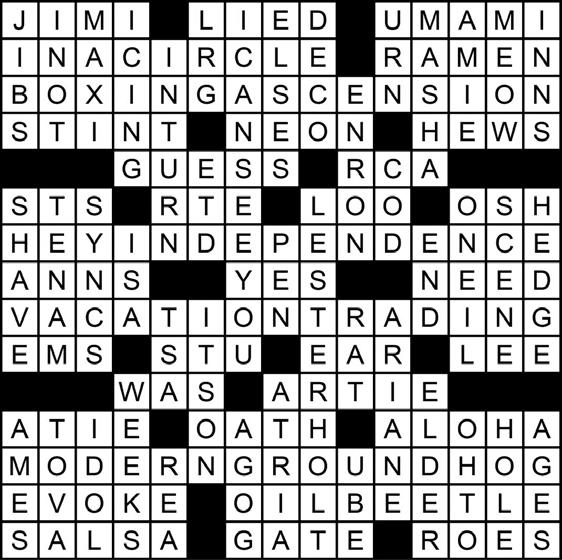blue and gold





t wasn’t my first brush — that was around seventh grade, when affirma tive action was trotted out as
an evergreen debate subject, along with abortion, euthanasia and gun control. This was around 1982, right around the time the sports world was considering whether a Black man could quarterback an NFL team to the Super Bowl.
Back then affirmative action was something of an abstract in my mostly white hometown, where everyone went to college and most of us ended up in finance or law.
I had already chosen a career in journalism when I felt it firsthand.
As a senior in college, I saw a flier on the bulletin board at my college newspaper for a paid internship at the Sacramento Bee. Ignoring the “minorities and women encouraged to apply” note at the bottom, I assem bled hard copies of some of my clips, printed off my résumé and put the thing in the mail, which is how we did it back then.


though New Orleans media was as Black as everything else in the city, I can remember only one Black stu dent who worked at the newspaper.
It made sense to me then, though not quite in the same way it does now, and so I shrugged it off and kept at it.
This week, when the US Supreme Court’s conservative majority hinted at ending the practice of affirmative action, I remembered that moment so vividly.


Then, I was honored that I even merited a personal phone call. I figured there would be plenty of other opportunities for me, and there were.
Now I understand more fully the importance of affirmative action, particularly in a media setting, where an effective organization must reflect the community it serves, but also in business, government, academia and every other industry in this country.
We are nowhere near parity, which is why affrimative action is still not only necessary, but desireable.
Make no mistake: Black folks in general still get a pretty raw deal in this coun try; any American who claims not to see it is just willfully ignoring it. But the needle is moving, and affirmative action plays a part in it.
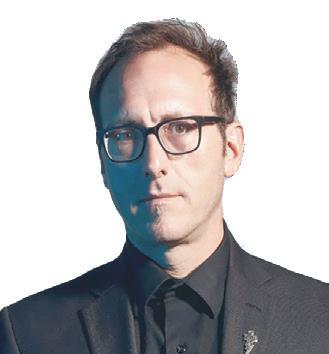
The call came a couple months later: An editor at the Bee had re viewed my clips and liked them. He wanted to offer me the job, he said, but they were intent on hiring some one who wasn’t me, a white kid from the suburbs with an endless list of advantages.
“I’m just calling to tell you that you’re a good writer and you should not give up,” he said, or something to that effect.
I had been in New Orleans for five years at this point, a far cry from the white suburbs of Long Island, the first time in my life I had actually lived, worked and played alongside Black folks. And even though Loyola had a lot of Black students, even
Thirty years later, I have seen affir mative action at work. There are way more Black folks with professional degrees, positions of power and high incomes in the US than there were when I was 23 years old. But we are nowhere near parity, which is why affirmative action is still not only necessary, but desirable.
Even today, there are thousands of guys like me working in the news industry: white, with a degree or two in the books and a knack for writing headlines. But there are still relatively few editors, publishers and others in positions of authority who do not look like me. And the results are the same as they’ve always been: news from the white, middle-class per spective, which is the same thing as propaganda.
Open Mic @ Plank Street Tavern (HP) 7 p.m. Musicians are invited to perform original or cover songs solo or with other musicians during open mic night at Plank Street Tavern. Sign up is at 6:45 with the music starting at 7. Visit the event page on Facebook for more information.
Finding Place @ Elberson Fine Arts Center (W-S) 6 p.m. Finding Place by Ollie Singleton is on display at the Elberson Fine Arts Center at Salem Academy and College until Dec. 16. Join Singleton for a recep tion followed by a book signing of her new publi cation A Woman’s ART by Her Grandfather’s Hand, a visual autobiography. For more information, contact alice.sanders@salem.edu.
Larry Bellorín and Joe Troop @ Carolina Theatre (GSO) 7:30 p.m.
Holiday Market @ Greensboro Coliseum (GSO) 10 a.m.
Find the perfect Christmas gifts for your loved ones during this holiday shopping experience. Shop with more than a hundred vendors from across the country for home decor, gourmet food and drinks and more. Santa will also be there for photos. Find more information and purchase tick ets from the event page on Facebook.
Toys For Tots Toy Drive and Chili Cook-off @ American Legion Riders Post 87 (HP) 6 p.m.

Eastgate Comic Con Fall 2022 Edition @ Greensboro-High Point Marriott Airport (GSO) 10 a.m.
Hopefully you didn’t pack up your Halloween cos tume yet, because Eastgate Comics is back with another Comic Con. Comic book vendors, artists and toy vendors will be on site. Don’t forget to dress to impress for the cosplay contest. For more information, check the event page on Facebook.
Stories from the Kitchen with Dikla Levy Frances & Belinda Smith-Sullivan @ Bookmarks (W-S) 2 p.m.
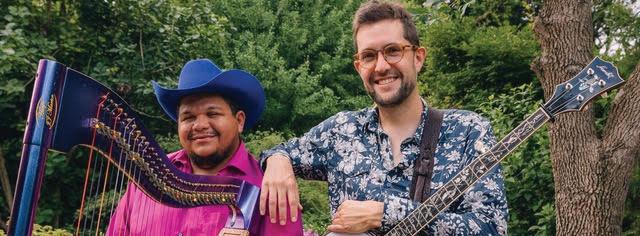
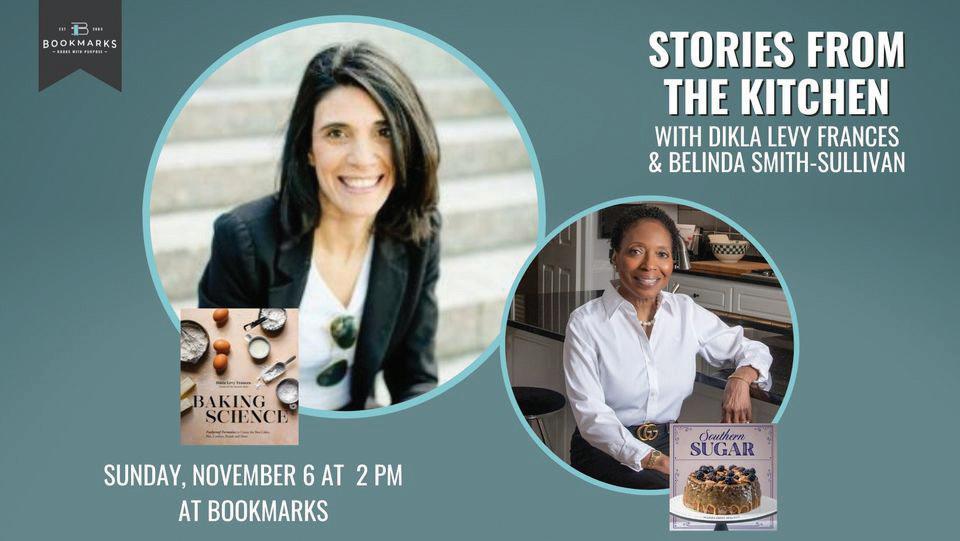
This unconventional duo is taking the stage at Carolina Theatre. Bellorín’s expertise of Llanera music combined with Joe Troop’s bluegrass sounds make for a unique fusion of Venezuelan and Appalachian folk music. Purchase tickets at carolinatheatre.com
Join DJ Dexter Jackson for an evening of music and fun during this toy drive and chili cook-off. Bring $10 or an unwrapped toy to benefit a child in need this holiday season, and enjoy some hot chili in this cool weather while you’re at it. Visit the event page on Facebook for more information.
Dial ‘M’ for Murder @ Stained Glass Playhouse (W-S) 8 p.m.
Join Stained Glass Playhouse for this production of Dial ‘M’ for Murder. Tony Wendice, a former tennis pro, married his wife Margot for her money. He plans to murder her for the same reason, but when this plan fails, Tony’s got another trick up his sleeve. Purchase tickets and see other showtimes at stainedglassplayhouse.org/dial-m-for-murder
Bookmarks is hosting Stories from the Kitchen, a quarterly conversation with chef and author Be linda Smith-Sullivan and a Southern cookbook au thor. Join Dikla Levy Frances for a discussion and to sample a recipe from her book Baking Science: Foolproof Formulas to Create the Best Cakes, Pies, Cookies, Breads and More. Visit the event page on Facebook to purchase tickets.
DOWN T OWN WI N STON-SALE M NOVEMBER 3–6 | 2022
Now’s a great time to enjoy downtown shopping. Visit downtownws.com for Shop the Block exclusive deals that’ll put a bounce in your step. And who knows, maybe even shoes on your feet.
Unlike many of the statewide races, the judicial races are often overlooked and the ones most shrouded in mystery due to voters’ lack of knowledge on the candidates and their offices. In North Carolina, judges run on partisan tickets, which is noted next to each candidate’s name below.
For this article, Triad City Beat used candidate responses compiled by the North Carolina Association of Defense Attorneys as well as information gathered from candidate websites and news reports. Full candidate responses can be viewed online here
The NC Association of Defense Attorneys (NCADA) is a professional association for civil trial lawyers representing the interests of business, industry, insurance companies and individuals. The association has also made endorsements via their NC Defense Fund PAC this summer. They endorsed both Democrats and Republicans. Candidates are listed alphabetically by last name first. Incumbents are listed first.
The NC Supreme Court is the state’s highest court with one chief jus tice and six associate justices who review cases from the NC Court of Appeals, NC Business Court and cases involving the death penalty.
Richard Dietz has served on the Court of Appeals for the last eight years and said he wants to serve as a Supreme Court Associate Justice as the next step. Dietz said he’s argued cases in appellate courts across the country, including the US Su preme Court. He prides himself on being a consensus-builder and said that he’s never authored a dissent.
“It’s not because I’m afraid to dissent…,” Dietz said. “But because I respect my colleagues, I listen to their views and I work hard to persuade them to reach consensus and a just result.”
Dietz also noted that he prioritizes being a judge, not a politician.
“Every judicial candidate claims they want politics out of our courts, but most can’t back it up,” he said. “I’ll never spam your inbox with emails about my campaign, asking you to chip in another $5. Politicians do that. When you hear from me, it will be about my work on the court.”

Lucy Inman has served as a judge for the last 12 years, and as a Court of Appeals judge since 2014. In 2020, she narrowly lost to Phil Berger Jr. in her run for NC Supreme Court. Un like Dietz, Inman said that she’s written dissenting opinions, including ones later adopted by the Supreme Court.
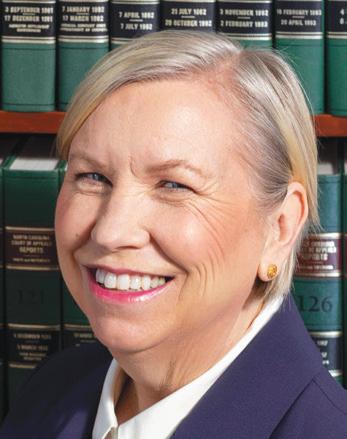
In an interview with NC Policy Watch, Inman said that “systemic racism has permeated our society, including our criminal justice system throughout history and my lifetime, because many of our legal authorities, including the criminal law, were written at a time when people of all races were not treated equally under the law.”
Like Dietz, Inman also stated that “party affiliation is not and certainly should not be a monolithic predictor of how a judge or justice is going to decide cases.”

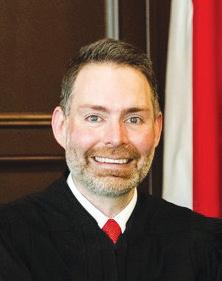
Sam Ervin IV has served as associate justice since 2015. Prior to that, he served as an appellate court judge and as the NC Utilities Commissioner. Like others running for office, Ervin mentioned how politics has become highly partisan and affects offices that shouldn’t be swayed by politics.
“A fair and impartial judiciary is critical to our system of gov ernment,” he said. “Unfortunately, we live in a hyper-partisan
era in which some view the judiciary as simply another political body and in which partisan politics plays an increasingly important role in judicial elections.”
During a candidate forum on Oct. 26, Ervin sidestepped whether he favored orig inalism or living constitutionalism, or the idea that a constitution’s meaning can evolve over time.
“I’ve always felt like this ‘originalism-living constitution’ discussion involves a false dichotomy,” he said in an NC Policy Watch article. “Those are two academic theories. We have laws in this state that say how the constitution is supposed to be interpreted, and those are the rules that I follow.”

Ervin’s opponent, Trey Allen, on other hand, stated that “originalism would act as the boundary for judges.” Still, during the candidate forum, he admitted that it’s difficult in North Carolina because the state has adopted three constitu tions: in 1776, after the Civil War in 1868 and again in 1971.
“I am running to restore public confidence in the judiciary’s impartiality,” he said in his NCADA answers. “If elected, I will be guided by the text and original understanding of the Constitution in cases that raise constitutional issues.”
Allen has served as General Counsel for the NC Administrative Office since January 2021. In that role, he leads an office of 10 attorneys. His legal career has spanned 22 years, mostly devoted to civil litigation. He spent time in the marine corps, most of that time as a judge advocate in Okinawa, Japan where he advised generals on military justice.
The NC Court of Appeals is the state’s intermediate appellate court and it reviews cases first decided in District and Superior Courts. Cur rently 15 judges sit on rotating panels of three. All judges serve eightyear terms.
Julee Tate Flood currently serves as a judicial law clerk attorney. According to the UNC School of Law, “judicial clerkships are one- to two-year paid, post-graduate positions with federal, state, and some local judges.” Typical responsi bilities include analyzing cases, recommending dispositions, as well as drafting opinions and orders of the court. Clerks may also assist in trials, oral arguments and other courtroom procedures.
Flood states that she will bring this experience if she is elected.
In her answers she said her judicial philosophy is “rooted in textualism.”
“I follow the rule of law as written in federal and state constitutions, acts of the legislature, and
precedential cases,” she said.
She has taught at Elon Law, Duke University and at the University of Tennessee.
Carolyn Jennings Thompson is a former District Court judge and Superior Court judge with more than 25 years of com bined legal and judicial experience. She said he will uphold the laws and constitution consistently if elected.
Much of her past work included prosecuting petitions of abuse, neglect and nonsupport of children.
“In my role as a District Court judge, I successfully advocated changing our court dockets so that domestic violence cases could be heard separate from the general civil court,” she said. Thompson is also a state-certified mediator for Superior Court cases. She went to Hampton University where she received her bachelor of arts degree and NC Central University School of Law for her juris doctor degree.
Donna Stroud was first elected to the Court of Appeals in 2006 and re-elected in 2014 without opposition. She has served as chief judge since January 2021.
As a longtime incumbent, Stroud pointed to her years of experience as crucial to the courts.
“Experienced leadership is crucial for the court at this time, as we work to improve internal court processes to adapt to changes in the ways our judges and staff work following the Covid-19 pandemic and as we work to improve electronic filing and document management processes both internally and for the public,” she said.
Working to improve the court is a passion for Stroud who said she has served as chair of the Chief Justice’s Rules Advisory Commission, on the Chief Justice’s Commission on Professionalism, the Family Court Advisory Commission, the Courts Commission and the NCBA Appellate Rules Committee.

After graduating from Campbell Law School, Brad A. Salm on started a small-town law practice with his sister-in-law. There they focused primarily on criminal defense, but also on civil and administrative areas as well. Salmon said he was also one of two defense attorneys appointed to the District 11 A Veterans Treatment Court.
“The zealous advocacy of the rights of the accused are among the most important tenants [sic] of our free society,” he wrote.
In 2014, Salmon was elected to represent Lee and Harnett Counties in the NC General Assembly. During his tenure, he sponsored legislation advocating for veter ans, protecting pollinators and expanding tuition assistance.
In 2021, he was appointed by Gov. Cooper to be a District Court Judge in District 11.
“Should I be able to serve on the Court of Appeals, I will bring the experiences of being a lawmaker, a lawyer, and a judge to the bench,” he said.
U.S. SENATE Cheri Beasley
U.S. HOUSE OF REPRESENTATIVES DISTRICT 6 Kathy Manning
N.C. SUPREME COURT ASSOCIATE JUSTICE
Lucy Inman, Seat 3 Sam J. Ervin, Seat 5
N.C. COURT OF APPEALS JUDGE
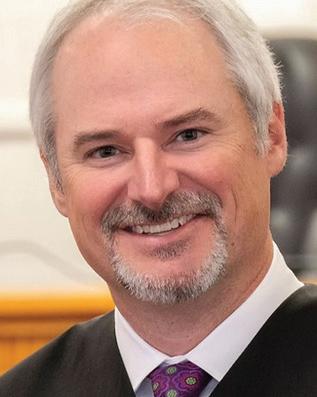
Carolyn Jennings Thompson, Seat 8 Brad A. Salmon, Seat 9 Gale Murray Adams, Seat 10 Darren Jackson, Seat 11
N.C. STATE SENATE
Michael Garrett, District 27 Gladys A. Robinson, District 28
N.C. HOUSE OF REPRESENTATIVES
Ashton Clemmons, District 57 Amos Quick, District 58
Sherrie Young, District 59 Cecil Brockman, District 60 Mary Price (Pricey) Harrison, District 61 Brandon Gray, District 62
N.C. SUPERIOR COURT DISTRICT 18C SEAT 1 Stuart Albright
N.C. DISTRICT COURT JUDGE DISTRICT 18 Marc Ross Tyrey, Seat 1
Larry L. Archie, Seat 2
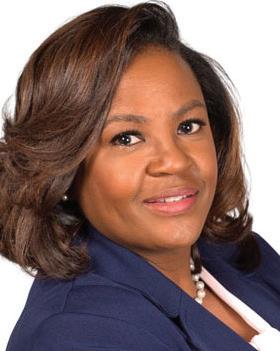
DISTRICT ATTORNEY Avery Michelle Crump
GUILFORD COUNTY BOARD OF COMMISSIONERS Kay Cashion, At large
J. Carlvena Foster, District 1 Paul Meinhart, District 2 Derek Mobley, District 3 Frankie T. Jones, Jr., District 7
GUILFORD COUNTY BOARD OF EDUCATION Alan Sherouse, At large
Amanda Cook, Dristrict 2 Deon Clark, District 4 Khem D. Irby, District 6 Deena Hayes Greene, District 8
GUILFORD COUNTY CLERK OF SUPERIOR COURT Lisa Y. Johnson Tonkins
GUILFORD COUNTY SHERIFF Danny Rogers


GUILFORD COUNTY SOIL AND WATER CONSERVATION DIST. SUPERVISOR David Crawford Joshua (Fox) Brown
Guilford County Democratic Party 2300 West Meadowview Road, Suite 110 Wrightsville Building Greensboro, NC 27407 336 292 2997
Email: gcdpchair@guilforddems.org Website: www.guilforddems.org Need a ride to the polls? Call Dem HQ at 336 292 2997
Paid for by the Guilford County Democratic Party
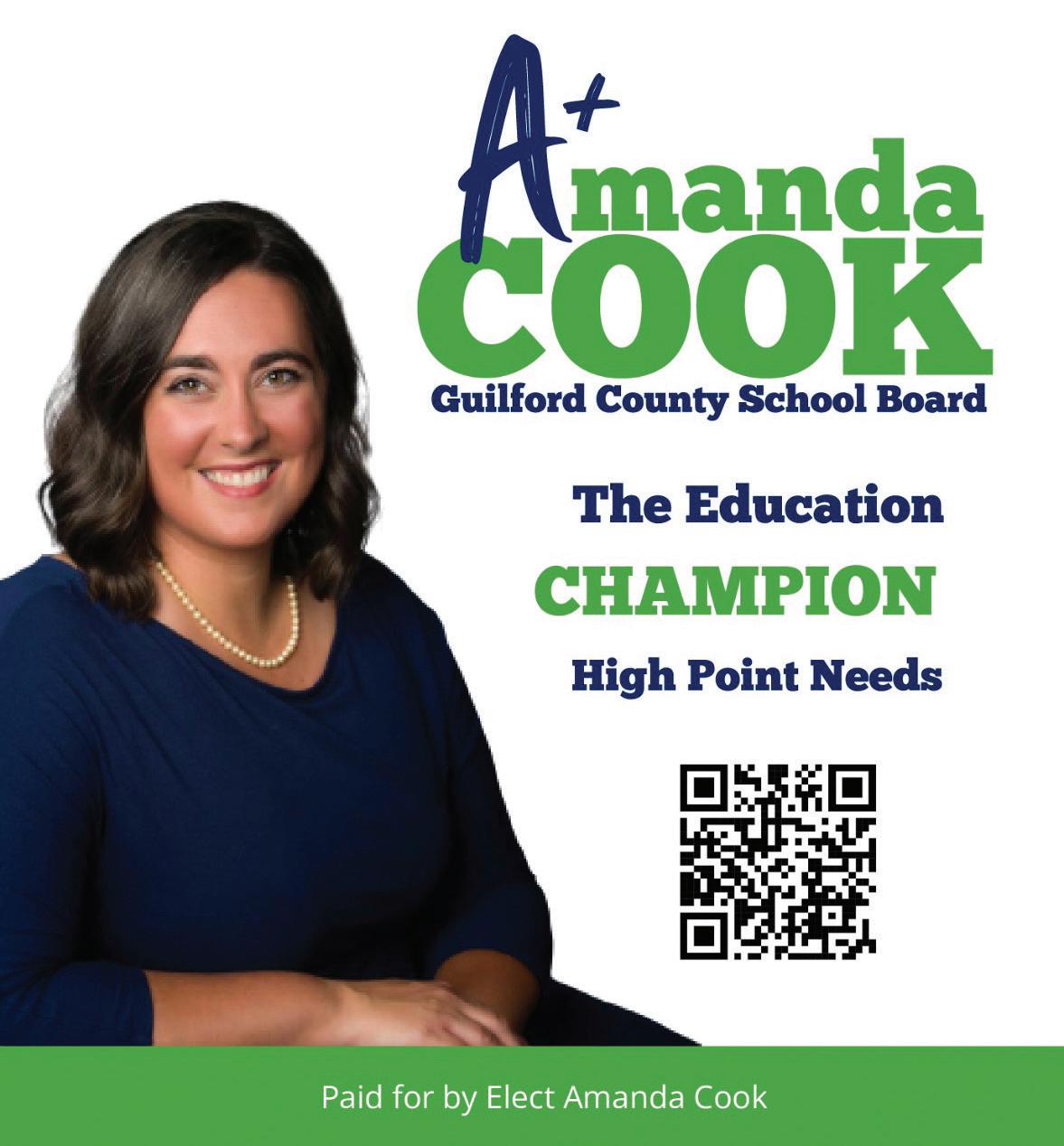
John Tyson was elected in 2014 and currently serves on the NC Court of Appeals and as the Vice Chair of the NC Dispute Resolution Commission. Previously, he was appointed by the Governor as Chairman of the North Carolina State Ethics Commission. He also served as a statewide elected Judge on the North Carolina Court of Appeals from 2001 until 2009 and as a Recall Judge from 2009-14.
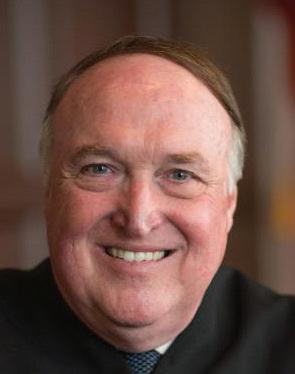
In addition to his judicial career, Tyson has served as a school teacher, probation officer, sheriff’s deputy and as a senior level corporate real estate developer. He also served in state military service.
On his website, it notes that Tyson “maintains a conservative judicial philosophy that protects individual freedoms, self-defense, private property, parental and rights of the unborn, and the separation of powers where the legislature makes policy.”
After graduating from UNC-Chapel Hill and NC Central University School of Law, Gale Adams joined the Navy as a judge advocate general. In that role she represented those who were charged with various criminal and military offenses. After her stint with the military, Adams served as an assistant district attorney. She then joined the Office of the Federal Public De fender. In 2012, she was elected to serve as a resident Superior Court judge for Cumberland County.
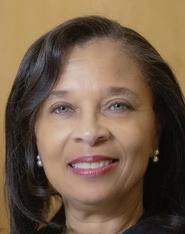
“I understand those who appear before me are counting on me to follow the law, to listen and be fair, and to treat them with dignity and respect; they deserve no less,” she said. “Whether they won or lost, when plaintiffs, defendants, victims, or attorneys leave my courtroom, I want them to feel like they were heard and that my decisions were fair.”

In his 25 years of practice, incumbent Darren Jackson litigated criminal and civil cases in all levels of court from small claims court to the NC Supreme Court. He was appointed to the Court of Appeals in December 2020 by Gov. Cooper and has written more than 90 opinions, including 11 dissents.
Jackson said he’s mindful of the court’s 90-day deadline.
Jackson previously served in the NC General Assembly as the District 39 House Rep. before being appointed by Gov. Cooper to the Court of Appeals. During his tenure, he introduced bills including ones that would have closed the Medicaid coverage gap, started a nonpartisan redistricting commission and adopted an equal rights amendment.
Michael J. Stading is a member of the Mecklenburg Chapter of the Sons of the American Revolution and the Charlotte chapter of the Federalist Society, a conservative and libertarian organization that advocates for original interpretation of the Constitution.
Since being admitted to the state bar in 2006, Stading has served as an assistant district attorney in Mecklenburg County. In 2012 he became a board-certified specialist in NC criminal law. In 2019, Stad ing was sworn in as a special assistant US attorney to handle cases originating out of the Shaw Air Force base. He also provided legal services to the Fraternal Order of Police Lodge #9.
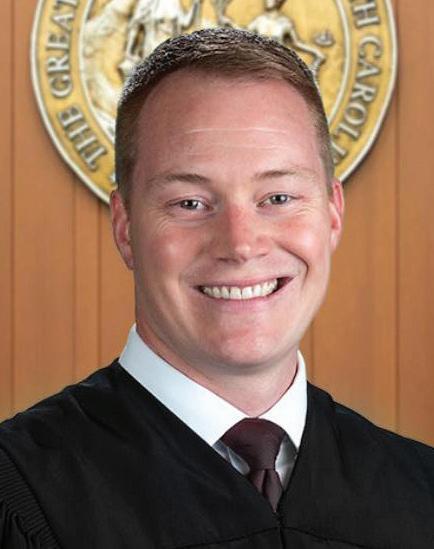
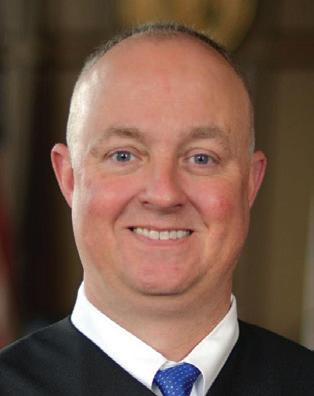
Michael J. Stading (R)
vote ALAN BRANSON for Guilford County Commissioner
. Proven Leadership from 2012-2020
. Support Quality School of Family’s Choice
. Funding for all men and women in uniform
. Economic Development for continued job cgrowth ontinued growth
. A conservative voice for all people
This story was originally published by NC Policy Watch on Nov. 1.
Many more people are seeking abortions in North Carolina since June, when the U.S. Supreme Court rescinded the constitutional right to abortion and neighboring states began outlawing or severely restricting abortions.
Fifty-three percent of the people coming to A Woman’s Choice North Carolina clinics are from out of state, spokeswoman Amber Gavin said in an interview. At least one person has come as far away as Missouri.
Getting to North Carolina from out of state is a “complicated balancing act,” for patients, Gavin said, that depends on whether they are flying in or driving, where they can get an appointment, and where the physicians they need to see are located. “We are really seeing folks from all over the South,” she said.
North Carolina is one of the states that has experienced the biggest increase in abortions since April, according to a report released last week by WeCount, a group led by the Society of Family Planning. The WeCount report takes a state-by-state look at abortion access since the Supreme Court decision.
North Carolina, which borders or is relatively close to states that outlawed or se verely restricted abortion, saw a 37 percent increase in August compared with April. At 36 percent and 33 percent, Kansas and Colorado had similar percentage increas es, according to the report.
Nationwide, abortions declined by about 6 percent between April and August.
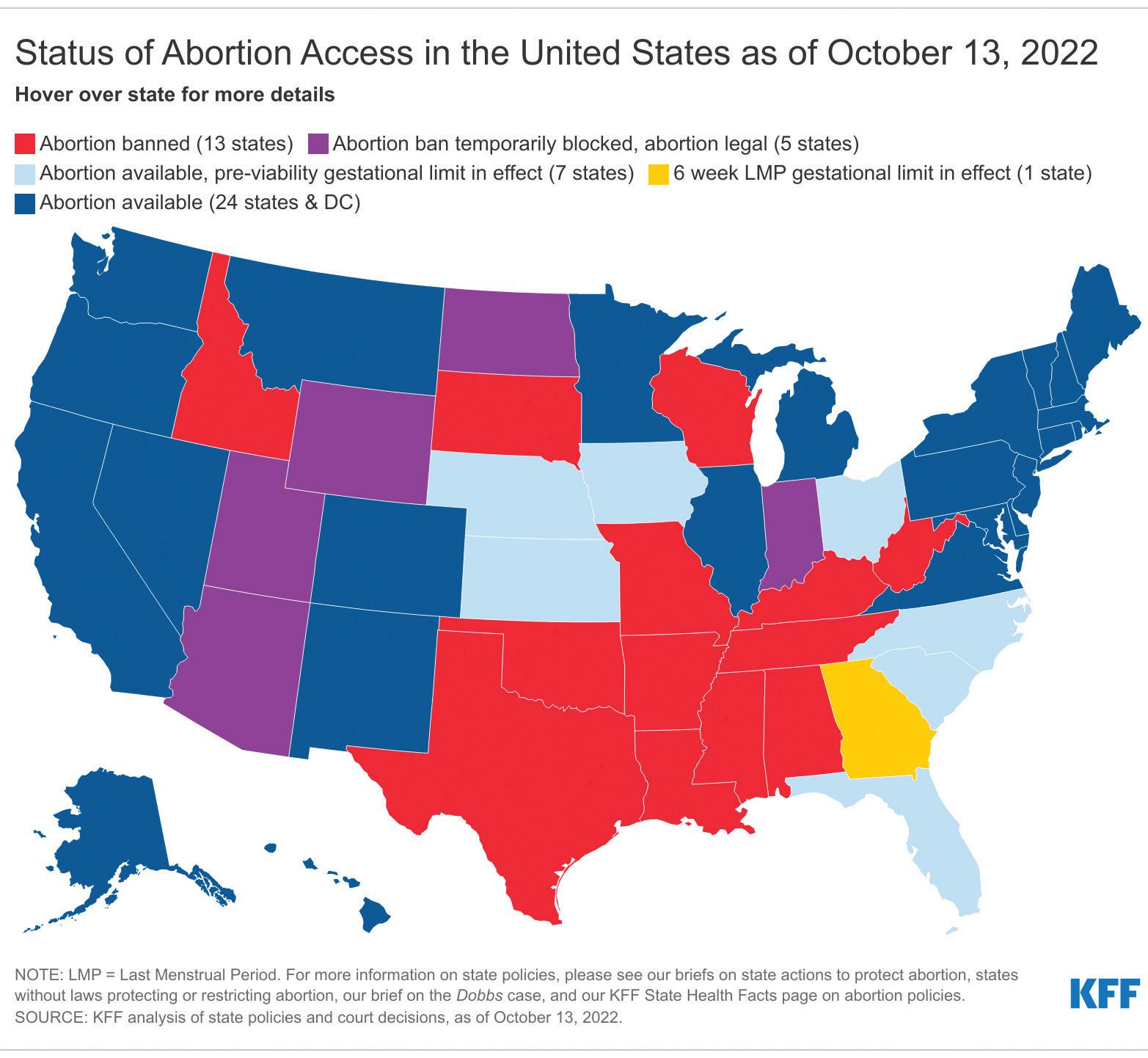





Planned Parenthood in North Carolina has also seen a substantial jump in out-
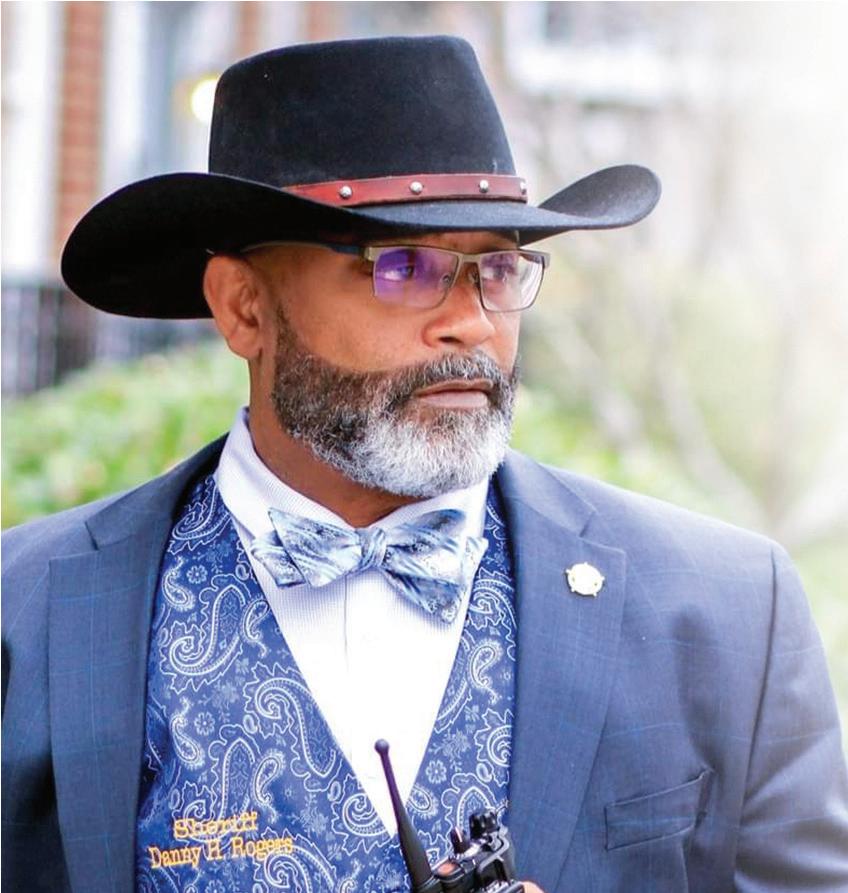
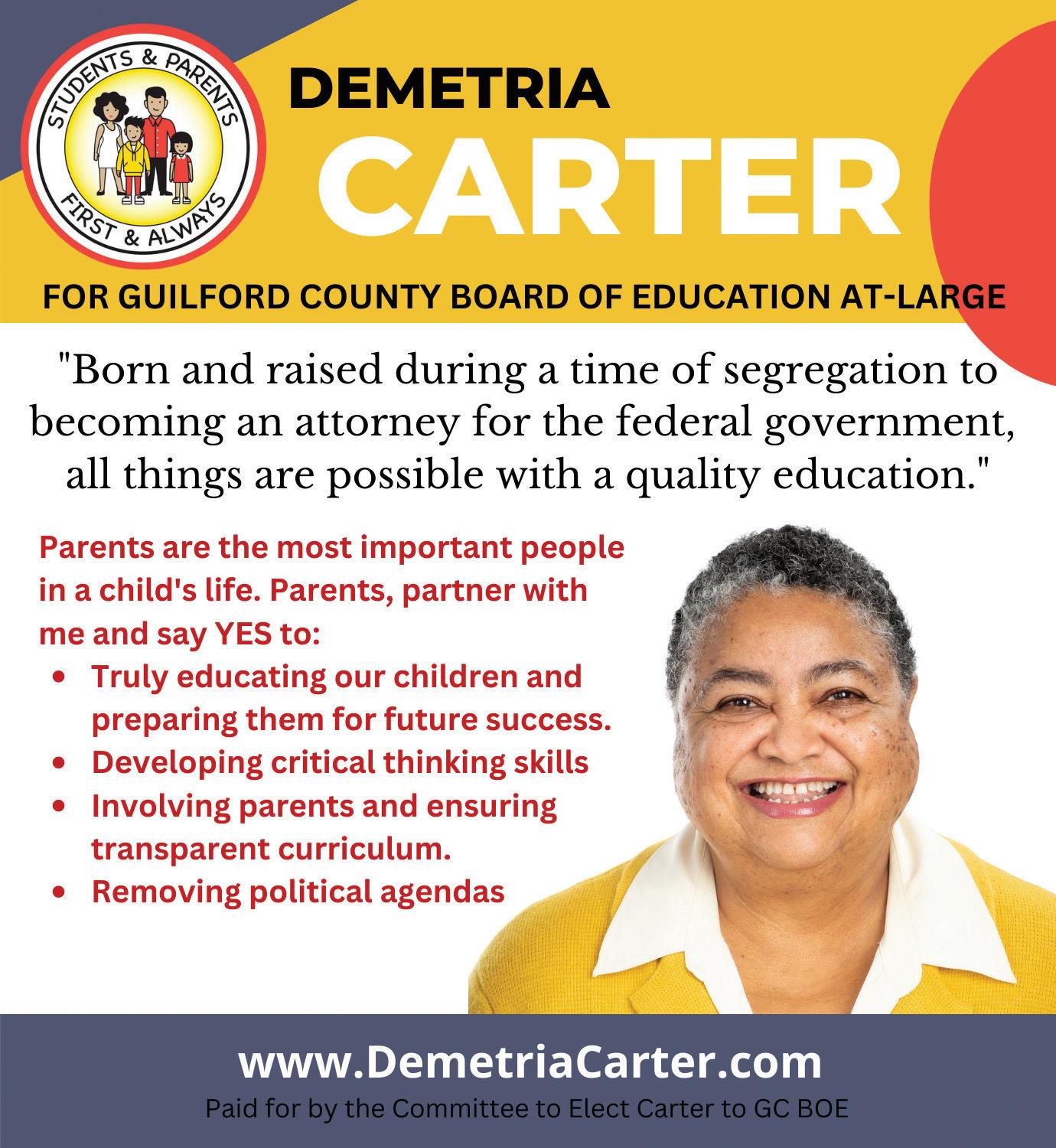
of-state patients since June. Some of the impact is described in a motion Planned Parenthood South Atlantic filed this month related to a 2020 lawsuit challenging North Carolina abortion laws.
Abortion is legal in North Carolina, but requires a 72-hour waiting period, bans telehealth for people who take abortion pills, and prevents certified nurse midwives, physician assistants and nurse practitioners from providing abortions, among other restrictions.
Planned Parenthood health centers in the state have seen an overall increase in out-of-state patients since June, according to the court documents, with some of the biggest jumps at its clinics closest to the state border.
Planned Parenthood in Asheville is the closest clinic for hundreds of miles for people from several states. At that clinic, 74% of the patients were from out-of-state in August, compared to 37% in August of last year.
At the Planned Parenthood clinic in Charlotte, 52 percent of patients in August were from out-of-state compared to 14 percent in August 2021.
“Abortion is time sensitive,” said Molly Rivera, communications director at Planned Parenthood South Atlantic. “Days and weeks matter.”
In 2020, 5,310 of the 30,004 abortions performed in North Carolina, or about 18%, were for non-state residents.
Only some North Carolina’s metro regions have abortion clinics, so even some state residents must travel more than 100 miles to get to one. Clinics are located in the Triangle, Charlotte, Asheville, Wilmington, Winston-Salem, Greensboro and Fayetteville.
In its latest legal motion, Planned Parenthood South Atlantic asked the court to allow advanced-practice clinicians to provide pills for medication abortions to help reduce patient waiting periods. Those same medical practitioners are already allowed to prescribe the same medications for miscarriage management.
Waiting periods for medication abortions have gotten longer since 2020, despite Planned Parenthood’s efforts to increase availability. The waiting period for med ication abortion appointments at Asheville was 12 days in the summer of 2021. That’s increased to two to three weeks since July 1, according to the court filing.
Nationally, about three-quarters of abortion patients in 2014 had low or very low incomes, according to the Guttmacher Institute, an organization that supports abortion rights. Most had at least once child.
Nonprofit abortion funds help people pay for the cost of the medical procedure, travel, childcare and lodging. But those funds are stressed by high demand, higher costs, and in some cases, fear of prosecution.
The Yellowhammer Fund, an abortion fund in Alabama, stopped offering help to people seeking abortions when that state law banning abortion went into effect in June. The Alabama law includes an “aiding and abetting” clause that forced the organization to stop helping people travel to other states.
“The way we used to operate is no longer legal after the erosion of Roe versus Wade and the Dobbs decision,” said Kelsea McLain, Yellowhammer Fund deputy director.
Telephone calls to the organization reduced to a trickle after the Dobbs decision, she said. “People are fearful to say the word ‘abortion,” McLean said. “The Dobbs decision really did terrify people into thinking abortion is no longer an option for them.”

McLain suspects that more people in Alabama will “self-manage” abortions by obtaining pills by mail. Aid Access, an online telemedicine service, delivers pills.
The Mississippi Reproductive Freedom Fund is still working to help people obtain abortions in other states, said Laurie Betram Roberts. Costs have multiplied as people travel to North Carolina, New York, California, Washington, D.C., and even to Mexico to obtain abortions, Roberts said.
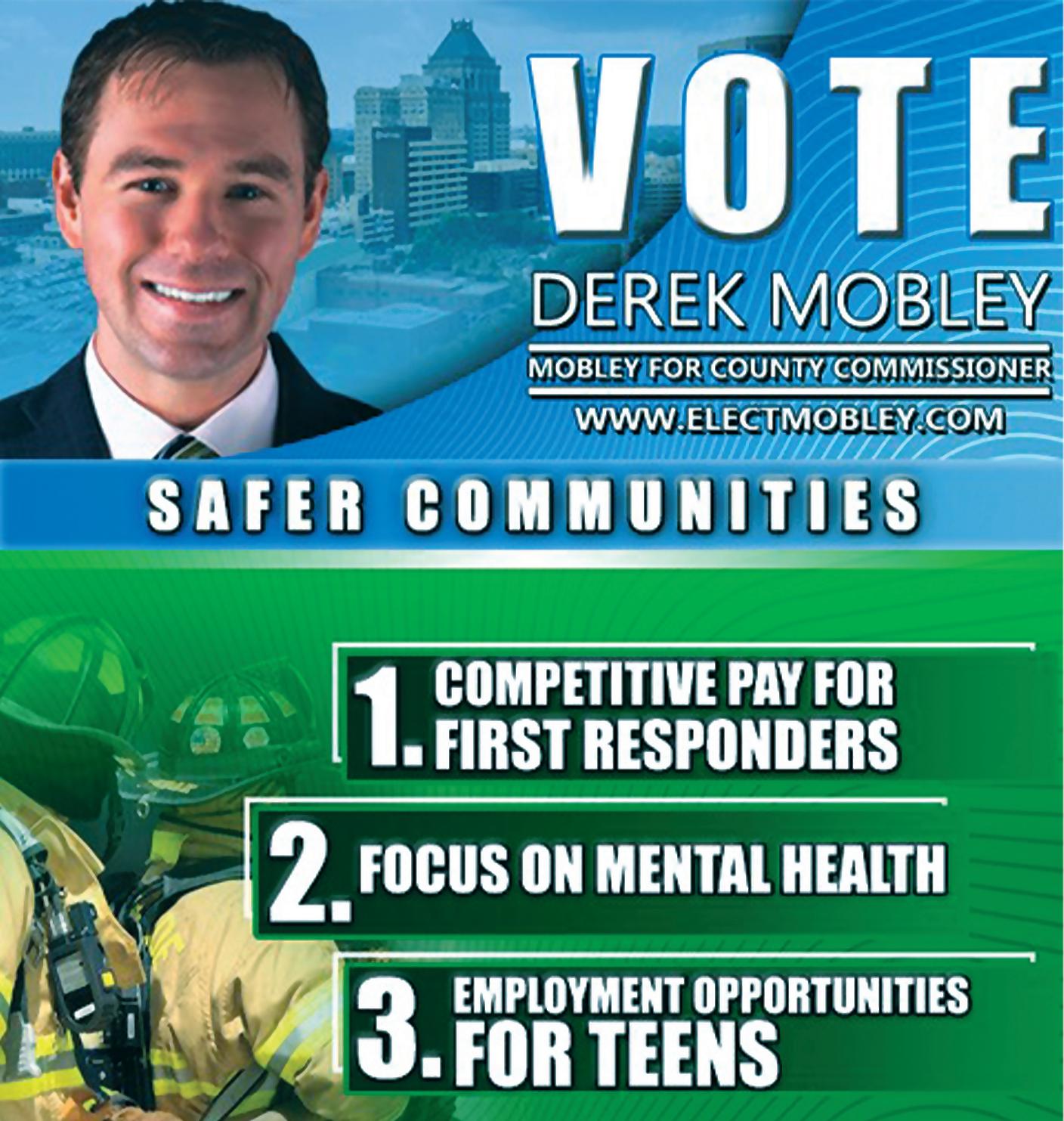
“Our funding budget is $15,000 a month,” she said. “Fifteen thousand, $20,000, that’s not even remotely enough.”
People want to go where they have some connection, such as family or friends, she said, but factors such as travel time and appointment availability also help
determine destinations.
Despite the financial pressures, Roberts was preparing to announce that the Mississippi Reproductive Freedom Fund would begin helping people from Ala bama to help fill the void.
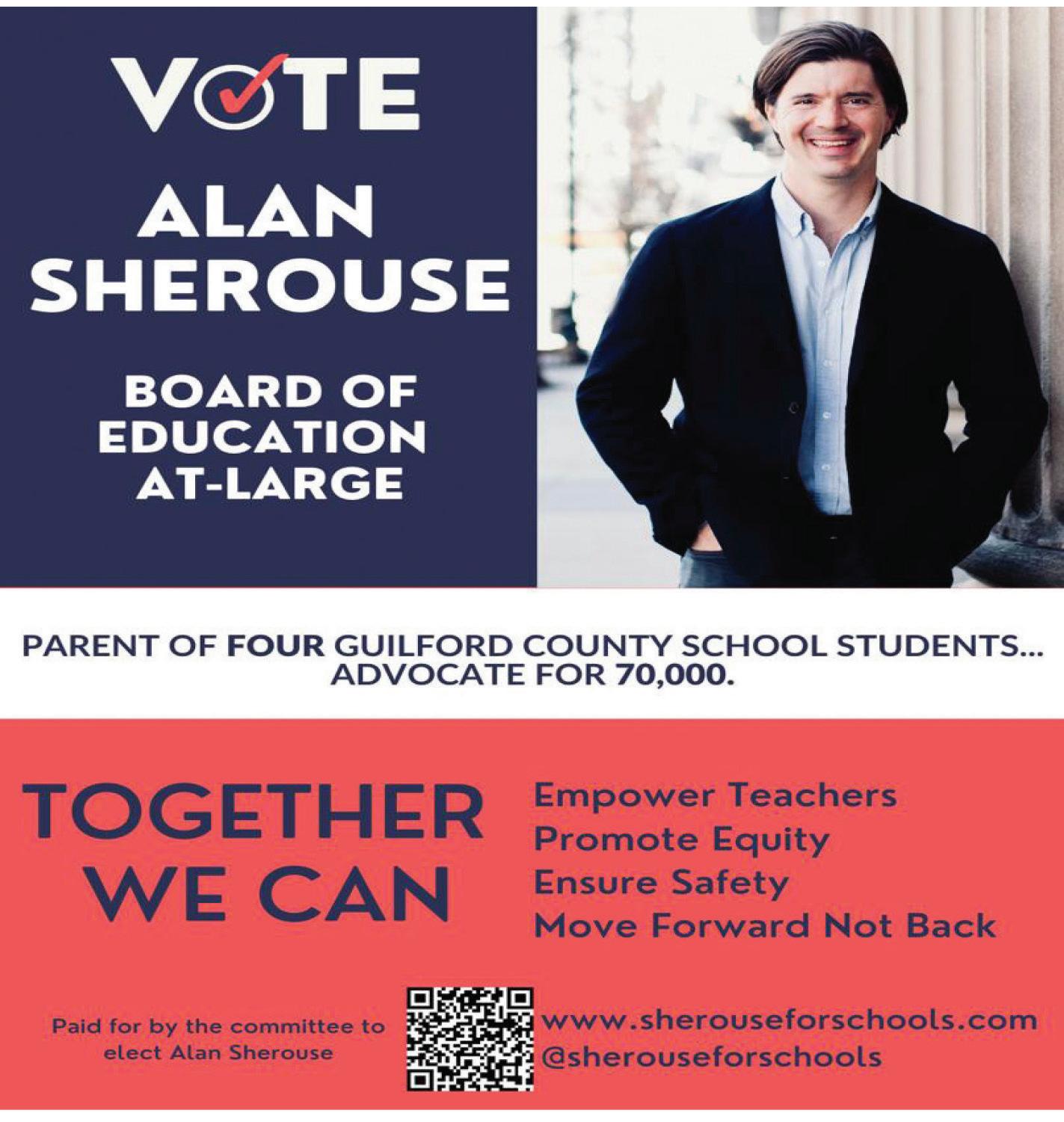


“We’re still here on the ground, still funding abortion,” she said. The Mississippi fund is also helping people who were forced to stay pregnant, with prenatal classes, doulas, and baby supplies. “We know of several already,” she said.
North Carolina’s position as a state where abortion services remain available is precarious. The Republican-controlled legislature passed abortion restrictions in recent years that have not been able to withstand Democratic Gov. Roy Cooper’s vetoes. Republicans need to pick up only a handful of seats in the state House and Senate to be able to regain veto-proof majorities that could render Cooper’s vetoes irrelevant.
NC Policy Watch is a project of the North Carolina Justice Center, is a news and commentary outlet dedicated to informing the public — including elected officials as they debate important issues — and ultimately to improving the quality of life for all North Carolinians.



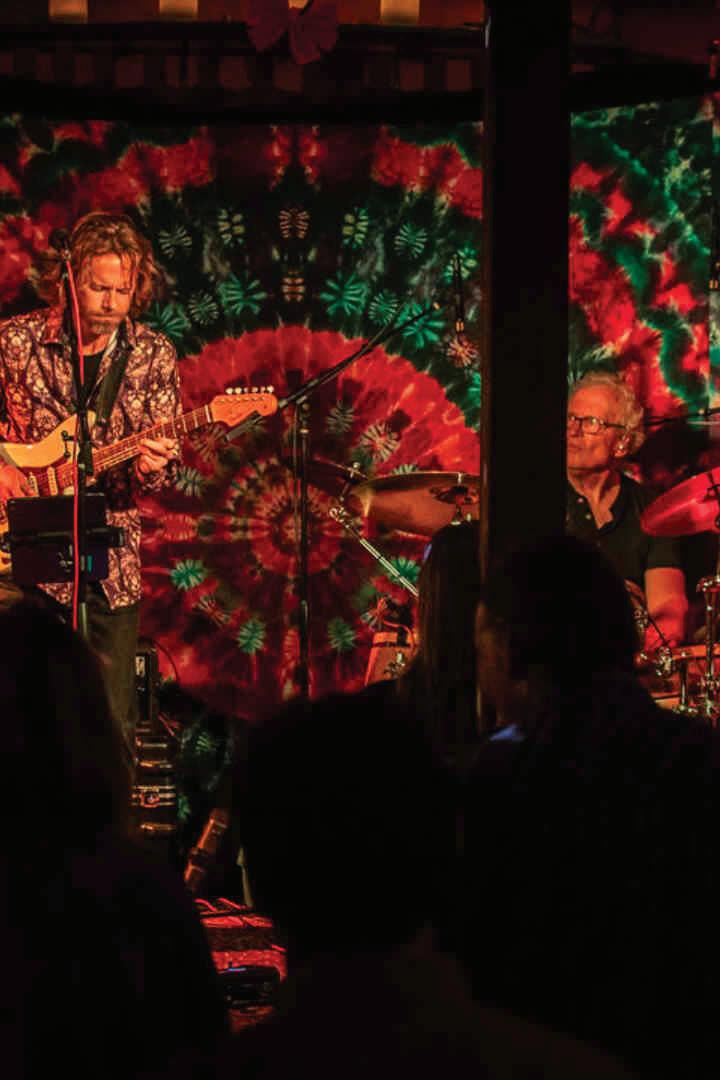
Early voting in North Carolina passed a significant milestone this week: More than 1 million voters have already cast their votes at One-Stop Voting sites across the state, and an other 91,000 or so have voted by mail.
NC’s conservative think tank, the John Locke Foundation, has a useful tool for analyzing early vot ing numbers at CarolinaElections. com, begun as a way to assure Republicans that there is nothing shady about early voting, and that rigging an election is a lot harder than people think.

In and of them selves, the num bers tell a tale.

It’s not exactly an apples-to-apples comparison to 2020, when there was a hot presidential race on the ballot and more than 3.62 million of us voted early and another million by mail. But we’re ahead of 2018 early-vot ing numbers at this point in time.
Many things have changed in those ensuing years, but the most striking one concerns the elector ate itself, which has become ma jority non-partisan as the largest subset are unaffiliated voters.
Interestingly enough, unaffiliat ed voters make up the smallest
percentage of those who have already voted — outside of Lib ertarian and Green parties, that is, which have thus far garnered fewer than 3,000 early votes com bined — with 29.5 percent.
As usual, early voting favors Democrats, who account for 39.1 percent of all early and mail-in votes, while registered Republi cans make up 31.1 percent.
These numbers correlate at the county level in both Forsyth and Guilford. And they hew closely with 2018 in terms of demograph ics and raw num bers.
So these num bers are more or less useless when it comes to prog nosticating elec tion results, which since 2016 (or even earlier) has been a fool’s errand. But they show that early voting is extremely popular with voters of all affiliations, and especially among the Olds — the age range of early voters heavily favors peo ple over 50 years of age.
It’s also useful to demonstrate to election-deniers the efficacy and accuracy of our elections, and that there is nothing shady about voting early.
But if they don’t get the results they want, they still probably won’t believe it.
More than 1 million voters have already cast their votes at One-Stop Voting sites across the state.
If walls could talk.
That’s the idea behind We Built This: Profiles of Black Ar chitects and Builders in North Carolina, a traveling exhibit on display in the University Galleries at North Carolina A&T State University until Dec. 9. The exhibit, made possible by Preservation Greens boro, highlights the stories of the Black archi tects who constructed or designed historical sites throughout North Carolina. It spans more than three centuries, providing historical context on topics like slavery and Reconstruction, segre gation and more.
In a press release from A&T, associate profes sor and visual arts program director Roy Carter stresses the importance of knowing the history behind treasured landmarks.
“Many times, we walk into these facilities and admire them, and are not aware of those who built them,” Carter says.
Dudley Memorial Building, located in the historic district of campus, is hard to miss with its grand entrance adorned with intricate stonework, splayed arches and six tall, wide columns. Through the main entrance, immediately on the right is H.C. Taylor Gallery, where the exhibit “We Built This” lives.
Delvon Peterson took into the exhibit on Oct. 27 after leaving work. He’s
interested in Black history and seizes any opportunity to learn more about it.
“We’re quick to go look at art from European artists when we can literally go and look at a piece of our [Black] history by simply going,” he says.
He continues, “As soon as you walk in, you feel the energy and signifi cance of being there.”
More than a dozen near 7-foot scrolls in chronological order stand in neat rows neatly ar ranged around the sides of the room, one behind the other. On both sides of the scrolls is a brief biography of a builder, a portrait of them and images of buildings they constructed. Resting against the back wall of the gallery are two large standing boards, one covering historically Black colleges and universities, and the other Black churches. In the center of the room are two more large boards of the same style, but these are double-sided, designed to be read with the side of the exhibit the board faces. For the best viewing experience, visitors should start on the left side of the gallery, make their way towards the back and come back up on the right.
The exhibit highlights the accomplishments of those who constructed buildings that viewers may have visited themselves. From 1859-61, Elvin Artis served as a contractor for the construction of the John D. Bellamy
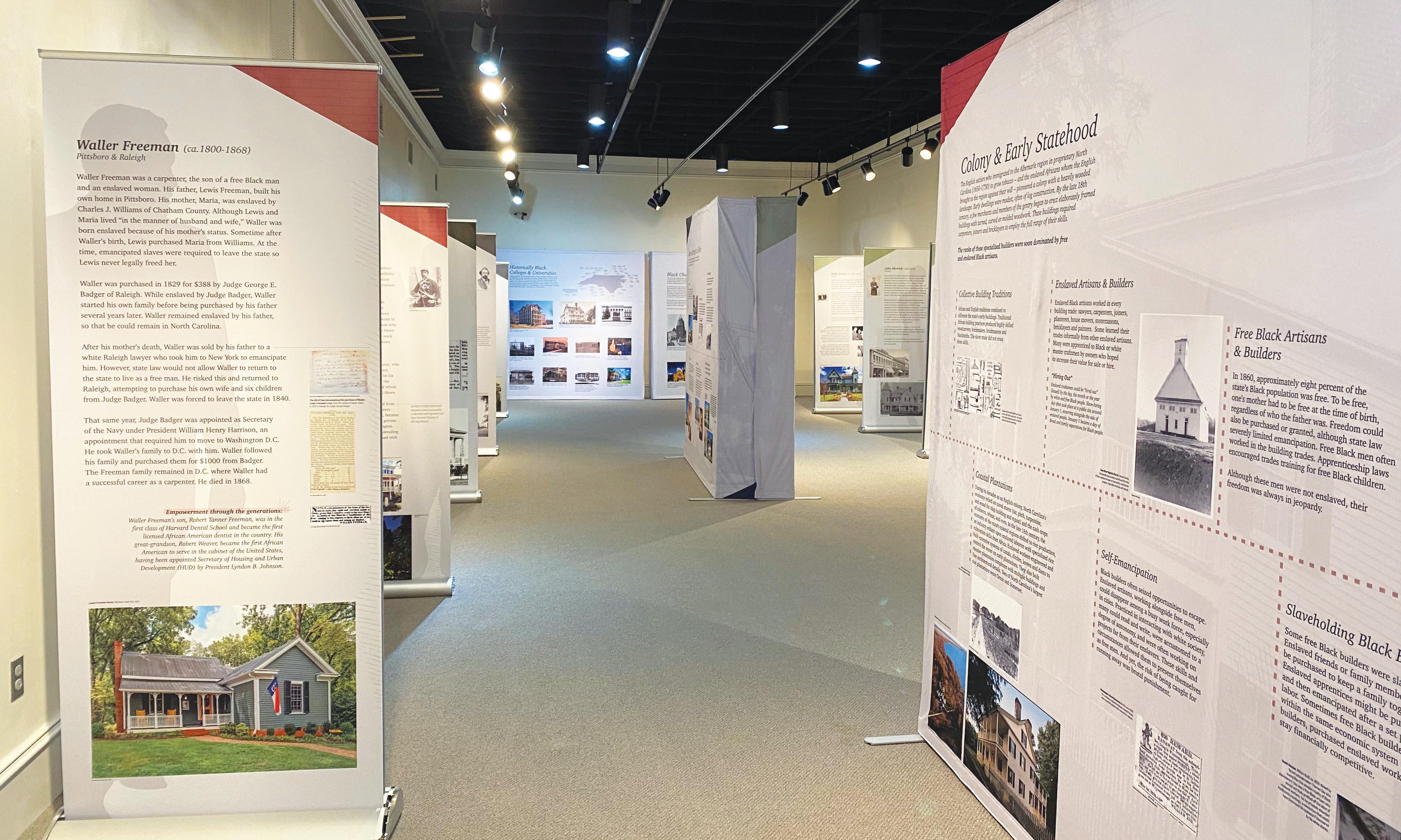
As soon as you walk in, you feel the energy and significance of being there.
“ “The new exhibit highlights accomplishments of those who constructed buildings that viewers may have visited themselves. PHOTO BY MICHAELA RATLIFF
39, 2022

Mansion in Wilmington. On the back of a decorative plaster piece on the rearback of the mansion are the initials of William B. Gould, an enslaved plasterer also featured in the exhibit. George Henry Black, from Winston-Sa lem, mastered the art of making bricks by hand by the late 1920s. His handmade bricks became a hot commodity, easing the reconstruction and restoration of structures and sidewalks around Old Salem. Salem Tavern, located in the Old Salem district, was built with bricks created by Black. He lived in the George Black House and Brickyard, located in Winston-Salem from 1934 until his death in 1980. The building is still standing.
As he walked around the exhibit, Peterson noticed the lack of women featured on the scrolls, but they were mentioned as mothers and wives. He hypothesizes this was due to sexist societal practices limiting job opportu nities for women through the 18th to 20th centuries.
“That line of work would’ve been considered ‘man’s work’ for a long time,” he says.


That’s not to say women and children weren’t around.
“Even though they weren’t showcased, there were probably instances of Black women and kids helping,” he guesses.
To Peterson, the most interesting of the artisans was Julian Frances Abele, chief designer for all West Campus buildings at Duke University and the Duke Chapel. He died in 1950, 11 years before the first Black student would be enrolled at Duke.
“It’s interesting to think that we were good enough to design but not good enough to attend,” he says.
He notes how the exhibit brings a sense of home instead of feeling out of place, especially when viewing the boards dedicated to HBCUs and Black churches. Peterson grew up in a Black church, and although he doesn’t attend anymore, he’s gained a new appreciation for them.
“They weren’t built and given to us; they were built by us and for us,” he says.
He encourages those who can attend the exhibit to do so. Not only does it feature the historical relevance of some of the state’s buildings and their creators, but it also represents the resilience of the Black people who created them. These artisans, some the children of enslaved people, some enslaved themselves, failed to let their circumstances deter them from greatness.
“For me, it shows a good representation of us because no matter how many times we’ve been knocked down, no matter how many times we’ve been brutalized, no matter how many times we’ve been victimized, we man age to stand up again,” Peterson says.
“The buildings are mirror images of the people that made them.”
The free exhibit is open to the public during normal University Galleries hours, Monday through Friday, 10 a.m. to 5 p.m., and Saturdays by ap pointment. For more information, visit ncat.edu/cahss/gallery.
In a sold-out game, the NC A&T State University Aggies dominated in their homecoming stand against Campbell University on Saturday, with a final score of 45-38. The Aggies are now 5-3 this season.
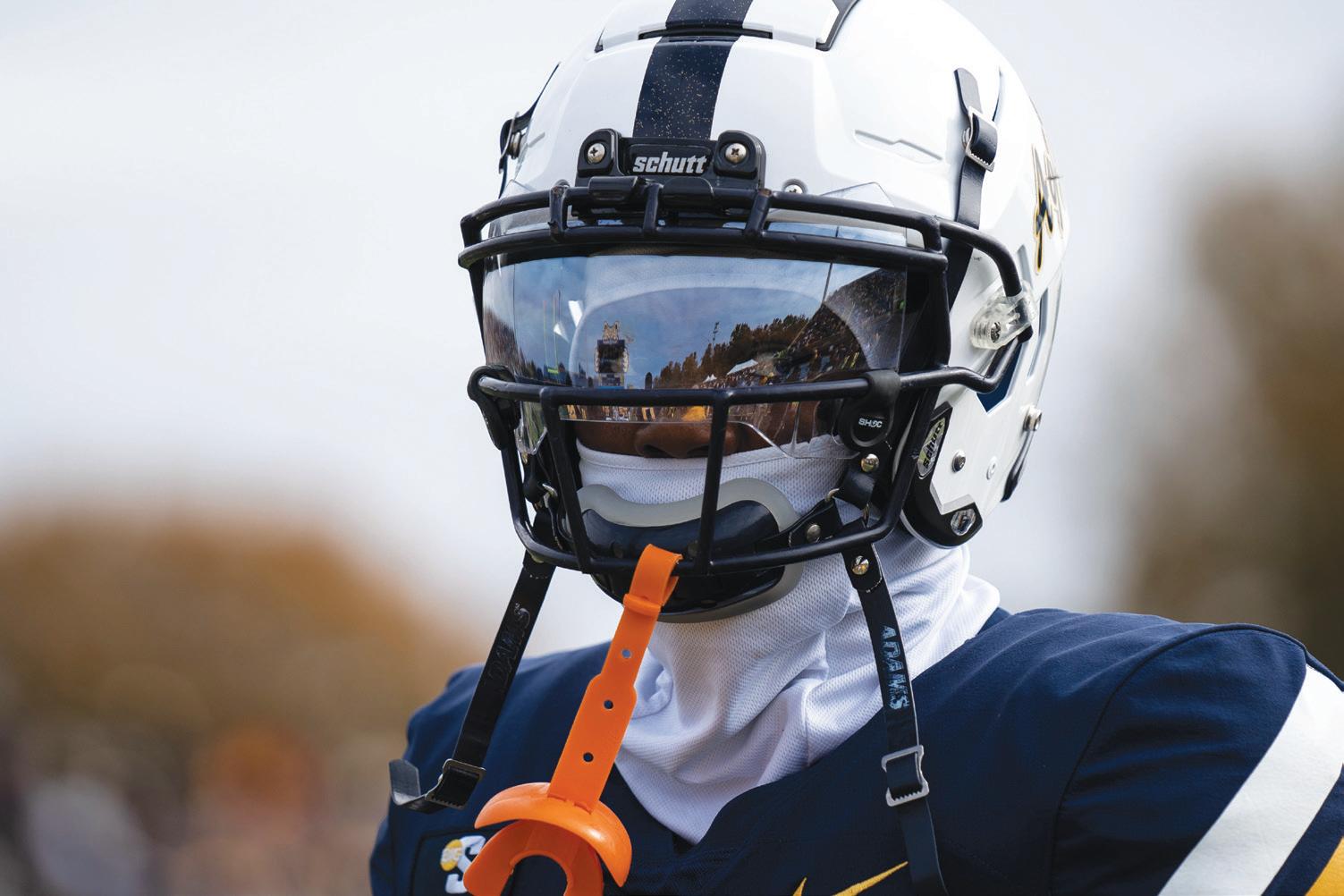

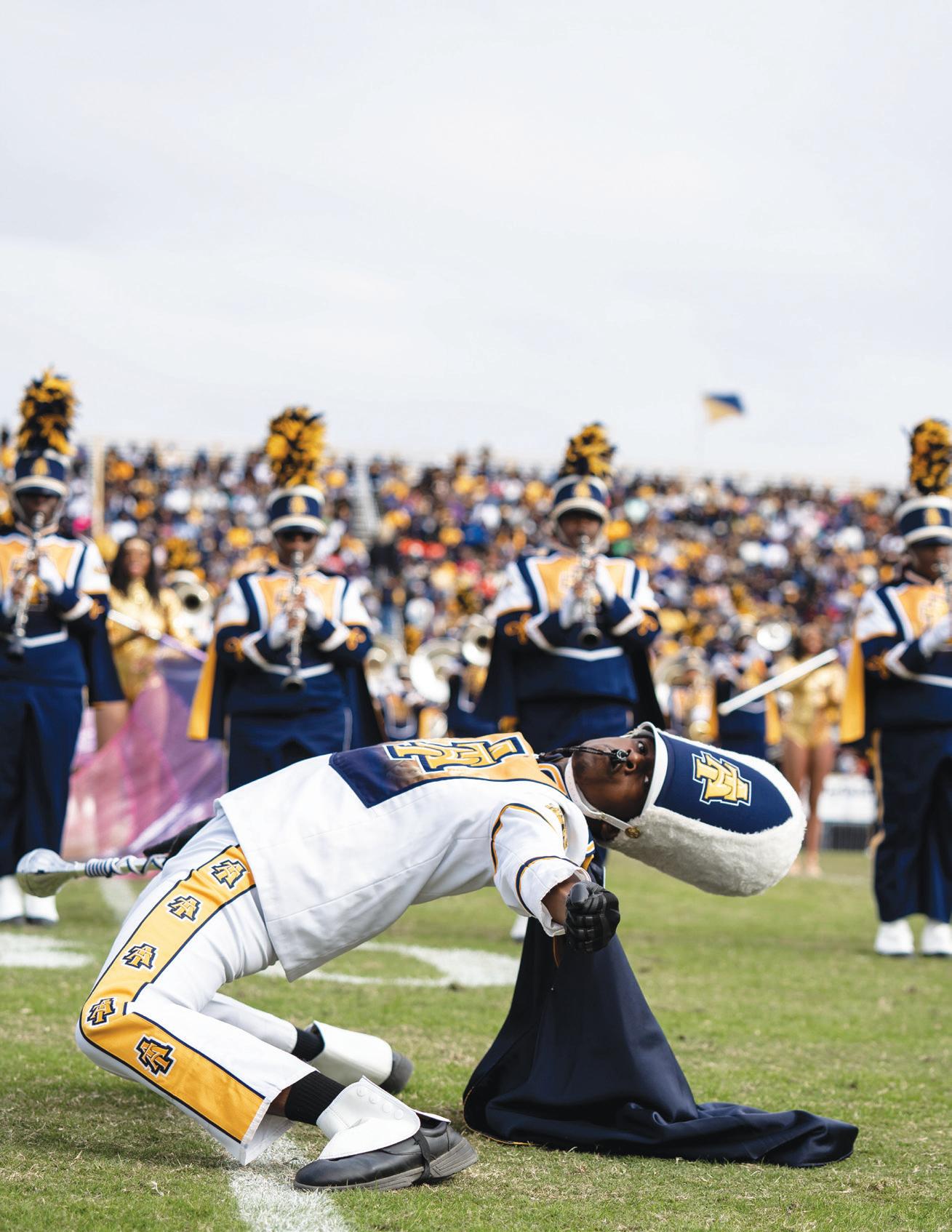

But the game was only part of the action.
The school’s Blue and Gold Marching Machine and Golden Delight dancers took over the field for the halftime show with an appearance from Chlöe Bailey. Other performances throughout the weekend featured Lil Baby, Nardo Wick and Glorilla.
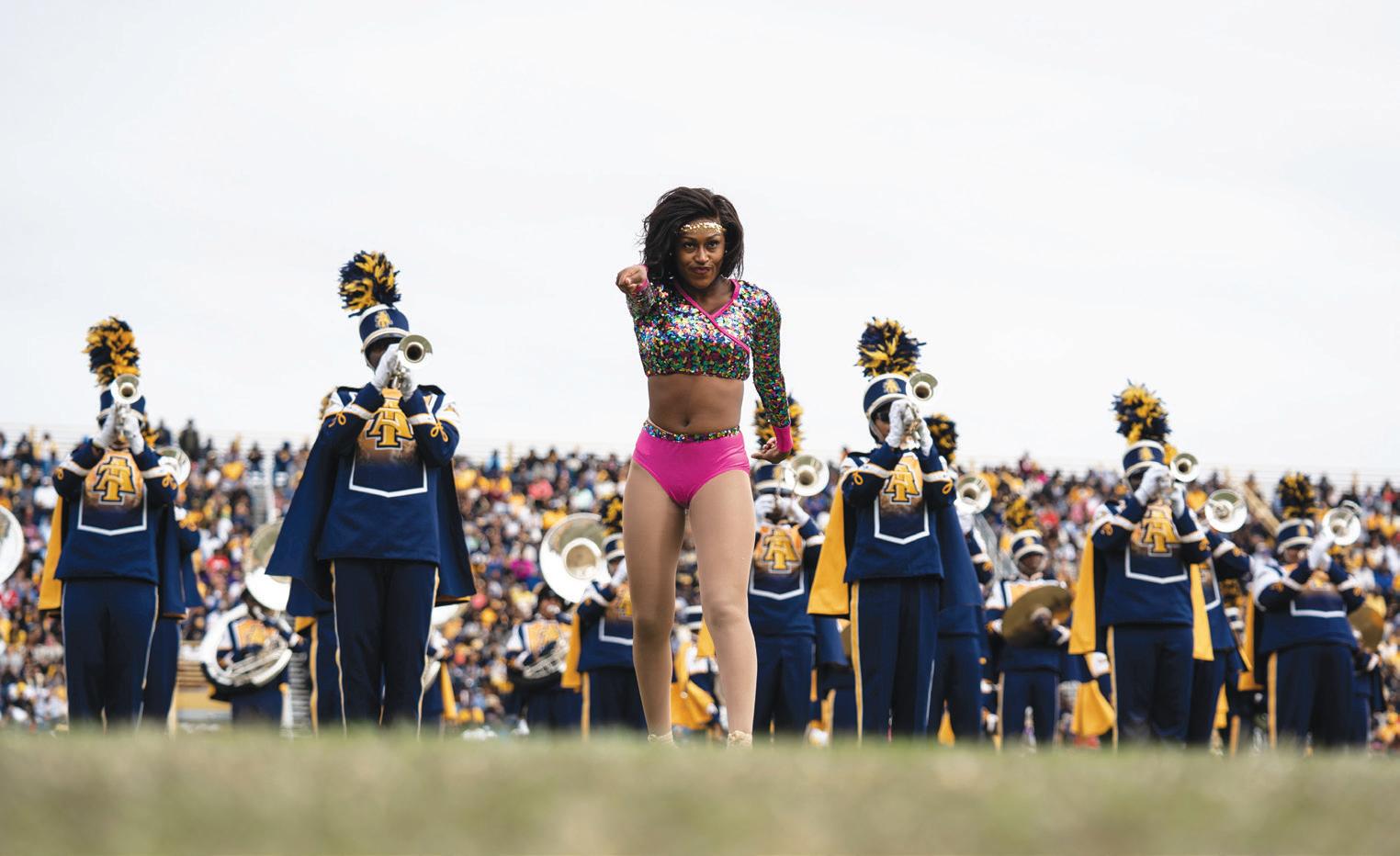




 BY CAROLYN DE BERRY
BY CAROLYN DE BERRY




